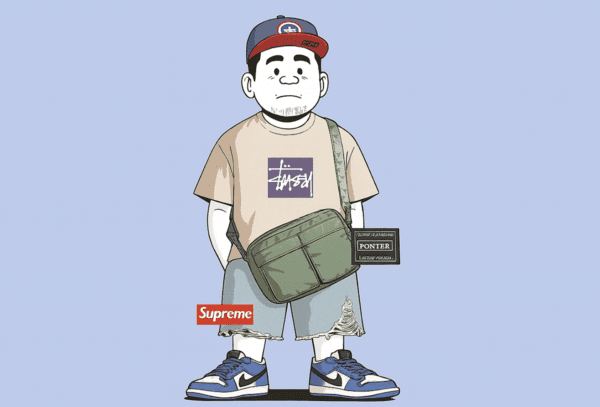Between “We’re the only ones who are right” and “We’re the only victims”
The “Young Forty” meme currently trending on the Korean internet

It refers to those in their forties who insist they’re still youthful—or who consume Millennial-style culture as a way of proving they remain young at heart. At first, I thought it was just a passing joke. But lately, I’ve begun to realize that this “Young Forty” identity has become a kind of social fault line.
Generational conflict, of course, has always existed.
Older generations say, “We paved the road through our struggles.” Younger generations reply, “Because of you, opportunities have disappeared.”
The difference today is that these debates no longer play out in discussions or public forums. Instead, they are exaggerated into battles inside algorithm-driven media. Memes, short clips, and punchlines like “Back in my day…” or “Boomer talk” reduce complex issues into oversimplified jokes. Each side becomes satirized into a caricature of itself.
Algorithms love conflict.
Anger and ridicule guarantee more clicks and longer watch time. Content mocking “old folks” or criticizing Gen Z spreads rapidly. Each group, in turn, strengthens its own belief that “our generation is the real victim.” The irony? Gen X, Millennials, and Gen Z alike are all falling into the same trap—fighting within identical frames of grievance while convinced they’re different.
The truth is that this conflict is often overstated.
Sociologist Zygmunt Bauman, in his concept of liquid modernity, explained how uncertain times amplify our hunger for belonging. Generational labels become an easy way to fulfill that need. But when these boundaries harden too much, conflict becomes satirized, trapping “us” and “them” in an exaggerated war of ridicule.
The phrase “Young Forty” may have started as lighthearted.

But now it doubles as both a declaration—“We’re still young”—and a shield—“We’re being treated unfairly.” Millennials blame the older generation; the older generation blames the one before them. Everyone claims victimhood. But is that really the whole story? Reality is far more complex. Some forty-somethings are still launching startups with youthful energy, while some twenty-somethings are already planning early retirement from rental income. In many cases, the gap within a generation is bigger than the gap between generations.
The real issue lies with the platforms.
What we see on YouTube, Instagram, and elsewhere is not the real generational divide, but a satirized version amplified by algorithms. Platforms feed us the conflicts we’re most likely to react to, and we mistake them for the full picture of society. In terms of evolutionary psychology, it’s confirmation bias amplified to the group level.
That’s why every generation—including the “Young Forties”—must ask:
“Am I seeing reality, or just reacting to a satirized conflict the algorithm serves me?”
Generational rifts will always exist. But if we only consume them as memes and satire, we risk ignoring the real problems that need solving together.
To wear the “Young Forty” label proudly is fine. But refusing to be trapped in the frame of “we’re the only victims”—that may be the truly young attitude.
Shin Seungho, Publisher of KMJ

![[동학] 카카오톡 친구탭, 결국 12월 롤백… “격자형 피드는 선택 옵션으로”](https://cdn.kmjournal.net/news/thumbnail/custom/20251126/5517_10550_1119_1763853080_120.jpg)


![[테크 칼럼] 제미나이3, GPT-5.1을 넘다…AI는 이제 ‘일을 대신하는 시대’로 간다](https://cdn.kmjournal.net/news/thumbnail/custom/20251126/5457_10454_4847_1763621329_120.jpg)



![[낭만 테크 시대] AI 대항해 시대](https://cdn.kmjournal.net/news/thumbnail/custom/20251126/5603_10714_4334_1764121414_160.jpg)

